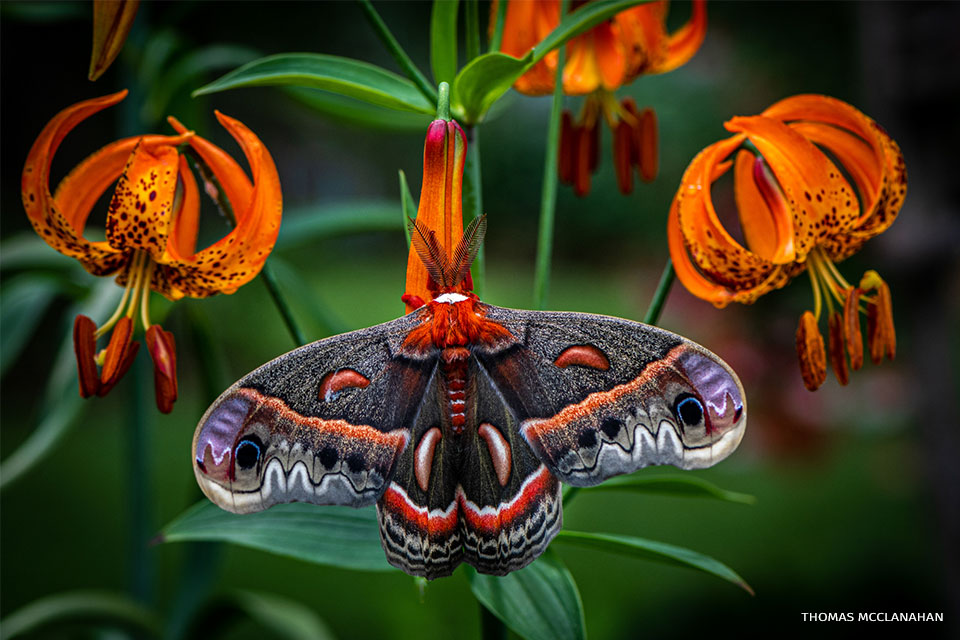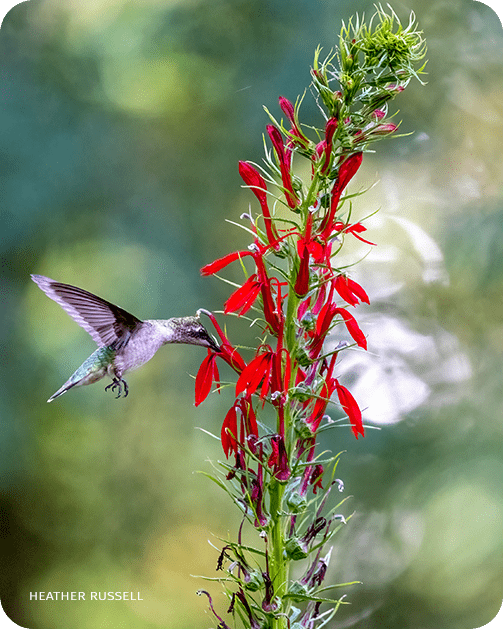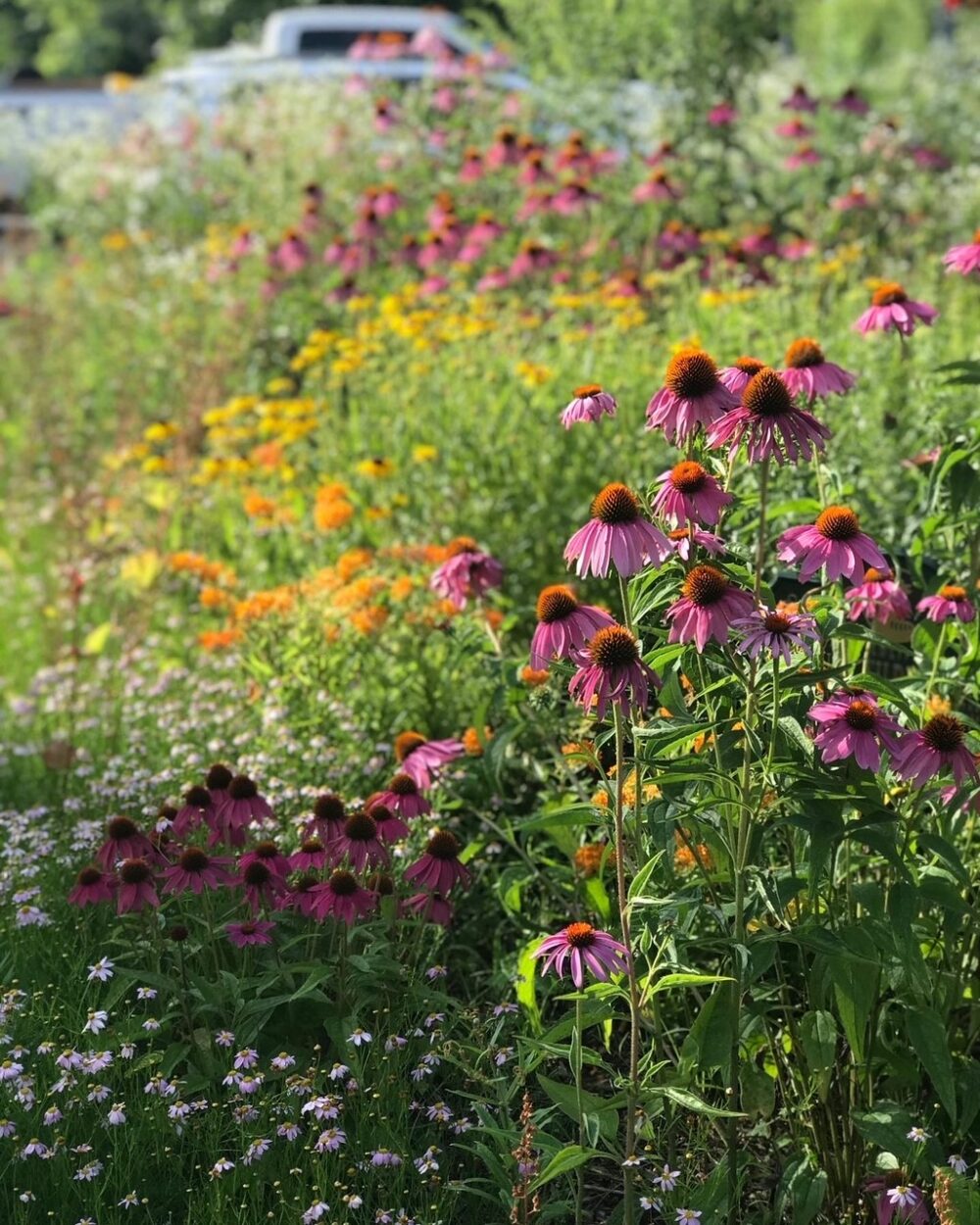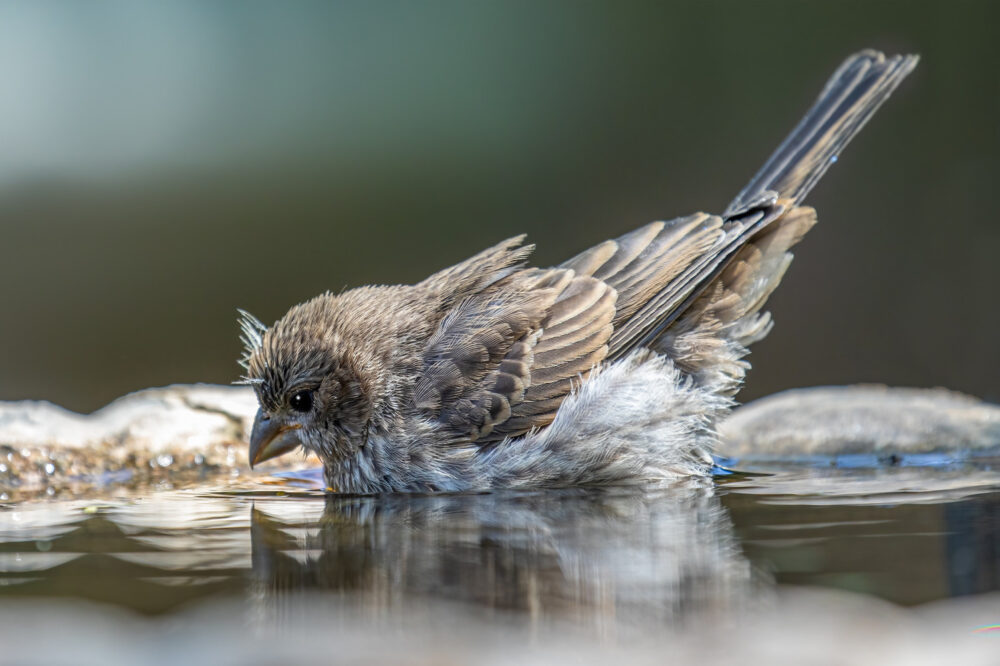We have much more to do and your continued support is needed now more than ever.
Honey Bees: What’s the Buzz About?
My first encounter with a bee probably went along the same lines as the majority of people’s encounters: the buzz, the flash of yellow and black and then the painful sting. But despite their bad reputation and occasional sting, bees are vital to ecosystems and to us.
According too the Pollinator Partnership website, nearly 80% of our world’s crop plants require pollination. Bees as well as birds, butterflies, beetles, flies and bats transfer pollen between plants. Plant reproduction hinges on this vital task. With honey bees taking the center stage in the media recently we wanted to provide some information about the National Wildlife Federation’s role in protecting these pollinating power-houses.
NWF promotes pollinator friendly gardening and habitat management techniques by encouraging everyone to reduce their use of pesticides in addition to planting native wildflowers and other flowering plants in their yards and businesses. Native plants are especially important because they provide most of the foods that the vast majority of bee species need to survive. We also recommend that organic produce and other products should be bought whenever possible.
It is important to note that the majority of bees that have been in the media lately are the introduced honey bee. Most native bees are solitary and under-researched, so there wouldn’t be an easy way to know if their populations are being affected by the same problem as the honey bee. However, we do know that pollinators overall are being affected by very similar issues.
The latest news on pollinators can be found at http://www.pollinator.org (mentioned previously). This website is run by the North American Pollinator Protection Campaign, a network of pollinator enthusiasts of which the National Wildlife Federation is a partner. If you are a pollinator enthusiast like me, be sure to check out their information about National Pollinator Week in June!
For more information about NWF’s gardening and habitat management programs, please visit
http://www.nwf.org/gardenforwildlife/.
Also, please check out our newest report The Gardener’s Guide to Global Warming for information about how non-native plants negatively affect your backyard.





















